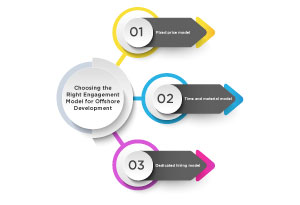The Role of Information Technology in Manufacturing Sector is foundational. IT plays a critical part in various operations across the industry. It drives automation and streamlines complex processes. This ensures the manufacturing sector remains competitive in the global economy.

In an industry that automates things for the benefit of humankind, IT helps to make the manufacturing process less cumbersome and more automated. IT helps drastically in delivering just-in-time insights, swift visibility, and seamless innovation for implementing new-age solutions.
Consumers are spending truckloads in emerging economies, but the focus now is much more on manufacturing excellence and innovation rather than just state-of-the-art machine production. Manufacturers have to push their industry further and farther in terms of complex routines, especially make-to-order and make-to-stock processes, so that they can deliver products on a configure-to-order requirements market.
Intense competition is one of the key points of concern for the manufacturing industry. Manufacturers need to develop and deliver cost-effective decisions, which are sure to stand the test of time. The regulations also impose flexible controls so that the enterprise thrives in the right direction.
IT Countering Supply Chain Complexity in Manufacturing
Countering Supply chain complexity is important since the traditional supply chain is now not in use. Companies are procuring information and machinery from low-cost centers that are currently very popular. The highly complex supply chains are hence full of hassles, which prompted the need for efficient management and optimization.
Maximizing the Return on Investment (ROI) from all Information Technology investments was historically a challenge for the Manufacturing Sector. Fortunately, this trend is now rapidly changing. IT drives greater flexibility in global operations. Consequently, the manufacturing industry is actively working to simplify and standardize its automation systems. This streamlining ensures support organizations make every dollar spent on technology deliver measurable value.
Global manufacturers spend heavily on operations. This spending is necessary for increasing efficiencies, boosting quality, and complying with regulatory norms. IT companies now offer custom solutions specifically for this industry. These solutions provide the required bandwidth to innovate on diverse business models.
The latest trends also indicate a range of multi-dimensional services spanning IT that aim to transform businesses, redesign operations, and boost value-added services, including infrastructure management and related services.
Next-generation manufacturing is thriving as multi-dimensional IT services drive digitalization and data-driven decision-making. Manufacturers are using advanced technologies to enhance production and create growth opportunities!
1. Advanced Analytics for Manufacturing Efficiency
- Predictive Maintenance (PdM): Using sophisticated sensors from the Industrial Internet of Things (IIoT)—a growing network of connected devices—to collect massive amounts of shop floor data, Advanced Analytics systems apply complex statistical modeling to forecast equipment failure. This value-added service turns maintenance from a reactive cost center into a predictable process, maximizing machine uptime and ensuring smooth production schedules.
- Virtual Modeling and Simulation: This involves creating accurate virtual representations of physical assets (machines, production lines, or even entire facilities) powered by high-performance IT systems. This advanced simulation allows manufacturers to run detailed scenarios, test significant process changes, and optimize complex configurations in a virtual environment before costly implementation on the floor. This drastically changes the design and planning phase, reducing risk and accelerating innovation.
2. Enhanced Security and Governance Management
- Cybersecurity in operational technology is essential due to increased connectivity in manufacturing. Implementing monitoring, intrusion detection, and access controls is vital to protect these systems.
- Regulatory Compliance Automation helps manufacturers manage environmental, safety, and quality regulations by streamlining audits and enhancing trust and reputation.
- Boosting Supply Chain Visibility: By using advanced Supply Chain Management software and tracking tools, we gain real-time insights into materials and products for seamless transparency from source to delivery. Let’s optimize your supply chain together!. This heightened visibility is critical for countering the complexity of modern supply chains and ensuring swift, data-driven responses to unforeseen disruptions.
- enhancing supplier and partner collaboration through the use of dependable EDI and data warehousing to guarantee consistent, reliable data throughout our business-to-business transactions.











